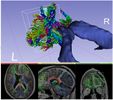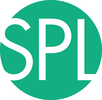Difference between revisions of "Documentation/Nightly/Modules/DWIToDTIEstimation"
From Slicer Wiki
m (Text replacement - "https?:\/\/(?:www|wiki)\.slicer\.org\/slicerWiki\/index\.php\/([^ ]+) " to "https://www.slicer.org/wiki/$1 ") |
|||
| (6 intermediate revisions by 2 users not shown) | |||
| Line 9: | Line 9: | ||
{{documentation/{{documentation/version}}/module-introduction-row}} | {{documentation/{{documentation/version}}/module-introduction-row}} | ||
| − | + | {{documentation/{{documentation/version}}/module-acknowledgements}} | |
Contact: <email>slicer-users@bwh.harvard.edu</email><br> | Contact: <email>slicer-users@bwh.harvard.edu</email><br> | ||
Website: http://slicerdmri.github.io/ | Website: http://slicerdmri.github.io/ | ||
| − | |||
| − | |||
{{documentation/{{documentation/version}}/module-introduction-row}} | {{documentation/{{documentation/version}}/module-introduction-row}} | ||
| Line 21: | Line 19: | ||
|Image:Logo-splnew.jpg|Surgical Planning Laboratory | |Image:Logo-splnew.jpg|Surgical Planning Laboratory | ||
|Image:NAC-logo.png|NAC | |Image:NAC-logo.png|NAC | ||
| − | |Image: | + | |Image:DWIToDTIEstimation screenshot DWI.png| DWI |
| − | |Image: | + | |Image:DWIToDTIEstimation screenshot DTI.png| DTI |
}} | }} | ||
{{documentation/{{documentation/version}}/module-introduction-end}} | {{documentation/{{documentation/version}}/module-introduction-end}} | ||
| Line 39: | Line 37: | ||
<!-- ---------------------------- --> | <!-- ---------------------------- --> | ||
{{documentation/{{documentation/version}}/module-section|Tutorials}} | {{documentation/{{documentation/version}}/module-section|Tutorials}} | ||
| − | + | Links to tutorials that use this module | |
| − | + | * Slicer4 Diffusion Tensor Imaging Tutorial: https://www.slicer.org/wiki/Documentation/Nightly/Training#Slicer4_Diffusion_Tensor_Imaging_Tutorial <!-- ---------------------------- --> | |
| − | <!-- ---------------------------- --> | ||
{{documentation/{{documentation/version}}/module-section|Panels and their use}} | {{documentation/{{documentation/version}}/module-section|Panels and their use}} | ||
{{documentation/{{documentation/version}}/module-parametersdescription}} | {{documentation/{{documentation/version}}/module-parametersdescription}} | ||
| Line 47: | Line 44: | ||
<!-- ---------------------------- --> | <!-- ---------------------------- --> | ||
{{documentation/{{documentation/version}}/module-section|Similar Modules}} | {{documentation/{{documentation/version}}/module-section|Similar Modules}} | ||
| − | * | + | * UKFTractography: https://www.slicer.org/wiki/Documentation/Nightly/Modules/UKFTractography <!-- ---------------------------- --> |
| − | |||
| − | <!-- ---------------------------- --> | ||
{{documentation/{{documentation/version}}/module-section|References}} | {{documentation/{{documentation/version}}/module-section|References}} | ||
| − | * | + | * http://slicerdmri.github.io/ |
<!-- ---------------------------- --> | <!-- ---------------------------- --> | ||
{{documentation/{{documentation/version}}/module-section|Information for Developers}} | {{documentation/{{documentation/version}}/module-section|Information for Developers}} | ||
| − | + | * https://github.com/SlicerDMRI | |
Latest revision as of 13:15, 27 November 2019
Home < Documentation < Nightly < Modules < DWIToDTIEstimation
|
For the latest Slicer documentation, visit the read-the-docs. |
Introduction and Acknowledgements
|
| |||||||||||
|
Module Description
Estimates the diffusion tensor model from diffusion weighted images.
There are two estimation methods available: least squares and weighted least squares. Least squares is the traditional method for tensor estimation and the fastest one. Weighted least squares takes into account the noise characteristics of the MRI images to weight the DWI samples based on their intensity magnitude.
Use Cases
- Use Case 1: Calculate the Diffusion Tensor image from a Diffusion Weighted image.
Tutorials
Links to tutorials that use this module
- Slicer4 Diffusion Tensor Imaging Tutorial: https://www.slicer.org/wiki/Documentation/Nightly/Training#Slicer4_Diffusion_Tensor_Imaging_Tutorial
Panels and their use
Parameters:
- IO: Input/output parameters
- Input DWI Volume (inputVolume): Input Diffusion Weighted Image (DWI) volume
- Input Brain Mask (inputMaskVolume): Brain mask to restrict tensor computation region [optional]
- Output DTI Volume (outputTensor): Estimated Diffusion Tensor Image (DTI) volume
- Output Baseline Volume (outputBaseline): Estimated baseline (non-Diffusion Weighted) volume
- Advanced Settings: Advanced estimation settings
- Fitting Method ([Weighted] Least Squares) (estimationMethod): Fitting method. LS: Least Squares, WLS: Weighted Least Squares
- Shift Negative Eigenvalues (ShiftNegativeEigenvalues): Shift eigenvalues so all are positive (accounts for unuseable tensor solutions related to noise or acquisition error)
List of parameters generated transforming this XML file using this XSL file. To update the URL of the XML file, edit this page.




